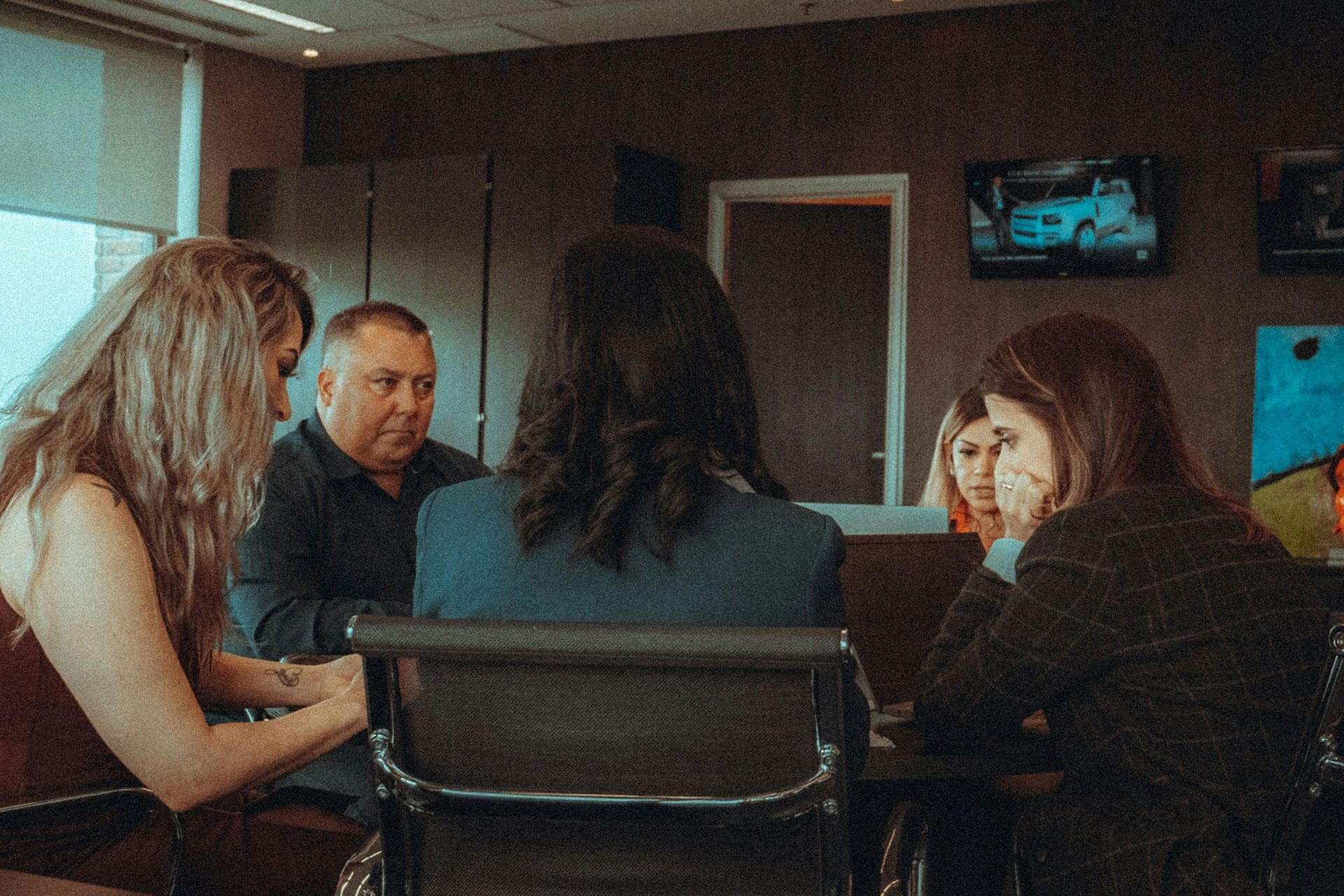7 October 2025
Sexual harassment is illegal in California. It's a form of sex-based discrimination that can target anyone - women, men, and non-binary people; straight, gay, and trans workers; applicants, employees, and even some contractors. It does not have to be motivated by sexual desire to be unlawful. What counts as sexual harassment? California recognizes two main types: Quid pro quo ("this for that"): someone with power (e.g., a supervisor) ties a job benefit - or freedom from punishment - to your submission to sexual advances or conduct. Even one instance can be unlawful. Hostile work environment : unwelcome conduct based on sex (including gender identity/expression or sexual orientation) that unreasonably interferes with your work or creates an intimidating, hostile, or offensive environment. A single severe incident can be enough; it doesn't have to be frequent. Examples include unwanted touching; sexual jokes or comments; leering; displaying sexual images; requests for sexual favors; or offering benefits in exchange for sexual conduct. Retaliating because someone rejects advances or complains is also unlawful. Key California rule : Courts and the Legislature clarified that harassment standards should be applied in a realistic way - "stray remarks" and overly high severity thresholds shouldn't be used to throw out valid cases. Who is protected? Which employers are covered? Everyone in California workplaces is protected from harassment - including applicants and people providing services under a contract - regardless of the employer's size. Harassment and discrimination are prohibited under the Fair Employment and Housing Act (FEHA). Among other things, FEHA protects workers from harassment because of sex, gender, gender identity/expression, sexual orientation, pregnancy/childbirth , and more. Federal law ( Title VII ) also bans sex-based harassment, which the EEOC enforces nationwide. Your employer's legal duties California holds employers to robust prevention and response standards: Keep a harassment-free workplace & act quickly . Employers must take reasonable steps to prevent and promptly correct harassment, including by non-employees like customers. They're responsible for harassment by supervisors/agents and may be liable if they knew or should have known about coworker or customer harassment and failed to act. Have a compliant written policy . California regulations require a clear anti-harassment/anti-retaliation policy with confidential complaint paths (not just your direct boss), prompt impartial investigations, documentation, and a ban on retaliation; it must be distributed to staff and translated when needed. Provide mandatory training . Employers with 5+ employees must give at least 1 hour of interactive training to non-supervisors and 2 hours to supervisors every two years and within six months of hire/promotion, covering harassment based on gender identity/expression and sexual orientation. How to recognize violations Ask yourself: Is someone demanding dates, sexual favors, or intimate messages in exchange for raises, shifts, plum assignments - or to avoid discipline? (Quid pro quo.) Are you dealing with unwanted touching; repeated sexual jokes; explicit images; "locker-room talk"; degrading comments about your body or gender; or misusing power to intimidate? (Hostile environment.) Did things worsen after you said no or reported it? That points to retaliation , which is also illegal under FEHA; whistleblower safeguards in the Labor Code offer additional protection for reporting violations. Immediate steps to protect yourself Document everything . Save emails, texts, DMs, voicemails, calendars, photos, and notes with dates, locations, witnesses, and what was said/done. (Back them up.) Tell the person to stop if you feel safe doing so . A short, clear message ("This is unwelcome. Please stop.") can help establish that the conduct is unwelcome. Use internal channels . Report through any path your policy allows - HR, a designated representative, a hotline, or a manager (not just your direct supervisor). California requires these options to exist. Seek support . Talk to a trusted coworker, friend, therapist, or advocate. If you feel unsafe, call 911. Get legal advice early . Quick guidance helps you navigate reporting choices, preserve evidence, and avoid common pitfalls. Reporting options outside your company California Civil Rights Department (CRD). You generally have three (3) years from the last act to start the CRD process for FEHA claims. You can request an immediate Right-to-Sue to proceed directly to court, or have CRD investigate/mediate first. After a Right-to-Sue, you typically have one (1) year to file in court. EEOC (federal). For Title VII claims, you usually must file a charge within 180 days , extended to 300 days in California because we have a parallel state agency. Charges are often dual-filed with CRD under a work-sharing agreement. Tip : Deadline rules can be tricky - especially if you had gaps in employment, worked remotely from another state, or the misconduct continued over time. Speak with an attorney as soon as you can about your specific timeline. Settlement confidentiality & your right to speak California's " Silenced No More Act " limits what employers can hide in settlements. Agreements cannot stop you from discussing facts of unlawful harassment, discrimination, or retaliation; employers also have restrictions on using nondisparagement or gag clauses. Separate rules limit "no-rehire" clauses. What can you recover? Depending on the case, remedies can include emotional-distress damages, back pay, reinstatement or promotion, policy changes, penalties, and attorney's fees ; punitive damages may be available in egregious cases. Common questions Does the law apply if my company is small? Yes. California's harassment rules apply to all workplaces, no matter the size. What if the harasser is a customer or vendor? Your employer still must take immediate and appropriate corrective action once it knows or should know. Can my boss be personally liable? Yes. Individuals who harass (supervisors and coworkers) can face personal liability under California law. Will I be protected if I report it? Retaliation for reporting or participating in an investigation is illegal under FEHA and California's whistleblower laws. How Chami Law helps Confidential, no-obligation case review. We'll listen, assess your options (internal report, CRD/EEOC charge, immediate Right-to-Sue, or a negotiated resolution), and map out next steps - on your timeline. Evidence & strategy. We help organize evidence, preserve texts/emails, and guide you through complaint procedures so you're protected from retaliation. Negotiation & litigation. From demand letters and policy fixes to mediation and trial, we pursue results that protect your career and well-being. Bilingual support. Nuestro equipo es bilingüe en español para atenderle con confianza y claridad. Quick checklist (save this) Write down what happened (who, what, when, where, witnesses). Preserve texts/emails/DMs/photos. Review your company's policy and report through any listed channel. Consider a CRD or EEOC filing to preserve deadlines. Talk to a lawyer early - before signing anything or quitting. Talk with Chami Law - free & confidential If you've experienced sexual harassment - or you're not sure whether what's happening is illegal - reach out. We'll explain your options and protect your rights, with no obligation to move forward. Contact Chami Law | Se habla español.











